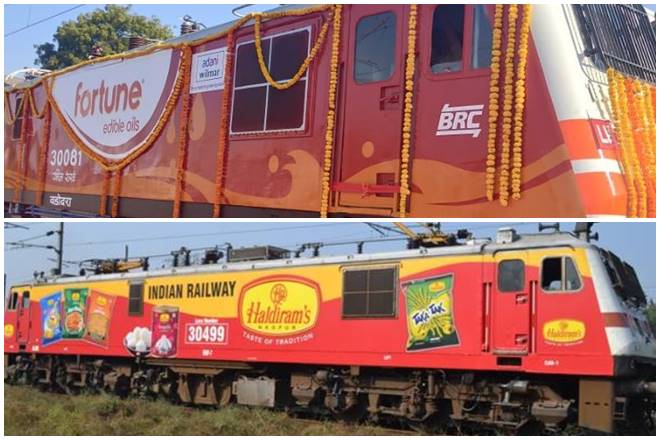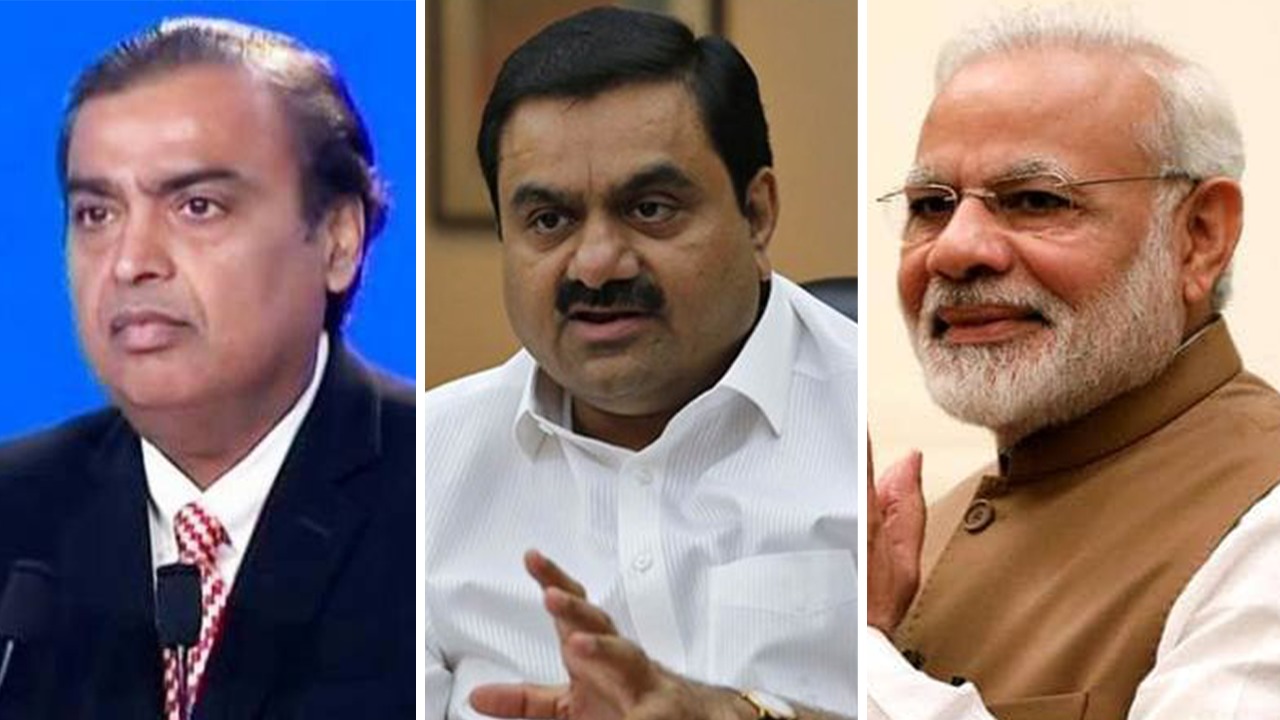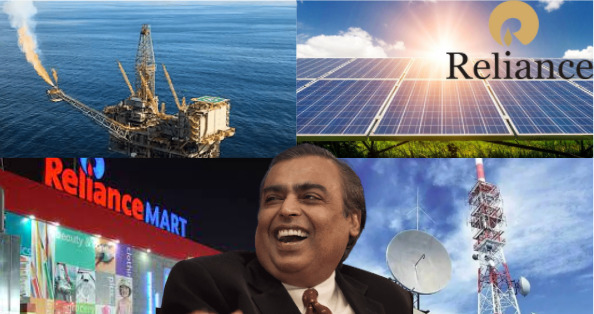Congress Raises Concerns Over Adani’s Trainman Takeover, IRCTC Responds; Why Does Every Asset In India Have To Have Either An Ambani Or Adani Stamp?
Congress general secretary Jairam Ramesh sought to suggest that Adani's takeover of Trainman may eventually result in the takeover of IRCTC, a claim denied by the railway's body. Meanwhile, Reliance Industries, led by billionaire Mukesh Ambani, scores a big win and is poised to generate $10-15 billion in revenue from its new energy business encompassing solar and hydrogen by 2030. As these two corporate giants expand their businesses and venture into new sectors, their close ties to the government have raised questions about the concentration of power and potential conflicts of interest.

The Congress party has raised concerns about the Adani Group’s takeover of Trainman, suggesting that it could lead to the eventual takeover of the Indian Railway Catering and Tourism Corporation (IRCTC). However, the IRCTC has responded to these claims, asserting that there will be no impact on their operations.
In a Twitter post, Congress General Secretary Jairam Ramesh shared a media report on the Adani Group’s acquisition of Trainman, accompanied by a caption that stated, “First compete with IRCTC… then take over.” The IRCTC took to Twitter to clarify that any change in Trainman’s stake would not affect their functioning.
The IRCTC emphasized that Trainman is one of their authorized B2C partners, and altering the ownership stake would not make a difference. They stated that all integration and operations would continue to be carried out through the IRCTC. The Railways body asserted that Trainman would only complement their services and posed no threat or challenge to the IRCTC.

The Adani Group’s acquisition of Trainman marks their entry into the railway sector.
Adani Digital Labs, a wholly owned subsidiary, signed a share purchase agreement to acquire a 100% stake in the online train ticket booking platform. Trainman was established in 2011 by Vineet Chirania and Karan Kumar, graduates of IIT-Roorkee, as a startup focused on resolving train ticket-related issues, including ticket booking, live running status, and PNR status.
The Reliance and Adani Groups’ Stamp & Increasing Influence on the Modi Government
The growing influence of the Reliance and Adani Groups, led by Mukesh Ambani and Gautam Adani, respectively, on the Modi government in India has become a topic of concern and speculation.
Under Prime Minister Narendra Modi’s leadership, the government has pursued an ambitious agenda of economic reforms, including the privatization of state-owned assets and the promotion of renewable energy. However, critics have argued that overly relying on the Ambani and Adani groups to drive these initiatives raises concerns about transparency, fair competition, and undue influence.
The Adani Group’s instantaneous expansion in sectors such as infrastructure, logistics, and renewable energy, has been met with scrutiny. The group’s close association with the government has led to accusations of favouritism and preferential treatment in securing contracts and obtaining regulatory approvals raising doubts about the level playing field for other businesses and the potential monopolistic tendencies of the group.
Similarly, the Reliance Group’s foray into new energy businesses, such as solar and hydrogen, has been accompanied by its growing influence over policy decisions and government initiatives. Mukesh Ambani’s close relationship with Prime Minister Modi has been well-documented, and the group’s substantial investments in sectors aligned with the government’s priorities have raised eyebrows.

Modi government’s heavy reliance on these two conglomerates creates an environment where economic power is concentrated in the hands of a few select entities. This concentration of power can potentially stifle competition, limit opportunities for smaller players, and hinder the development of a truly diverse and inclusive business landscape.
Moreover, concerns have been raised about potential conflicts of interest between the government and these corporate giants. The intertwining of political and business interests raises questions about the impartiality of policy decisions and the possibility of undue influence over government actions.
While supporters argue that the involvement of these groups is crucial for driving economic growth and attracting investments, it is essential to ensure that the decision-making process remains transparent, fair, and accountable. The government should actively address concerns regarding the influence of these conglomerates and take measures to promote healthy competition and a level playing field for all businesses.

How India’s Privatization Drive Hit Hurdles as Tycoons’ Finances Under Scrutiny
Nearly a decade ago, Prime Minister Narendra Modi embarked on a mission to privatize a significant portion of India’s struggling state-owned enterprises, rallying the support of the business elite to revive an inefficient public sector.
However, as the financial situations of some of these tycoons, including Gautam Adani and Anil Agarwal, have come under scrutiny, Modi’s privatization campaign faces further obstacles. With only one major firm privatized since 2014 and the progress of other candidates stalled, the government navigates a challenging environment.
The case of the Adani Group exemplifies the challenges faced by the privatization drive. Modi has relied on a handful of businesses, including the Adani Group, to enhance India’s infrastructure and attract foreign investment. However, after a New York-based short seller accused the Adani Group of fraudulent practices in January, the company has become more cautious about new investments.
This development hindered Adani’s ambition to acquire businesses such as Concor, the country’s leading freight rail operator, which has a market capitalization of nearly $5 billion. During an analyst call in February, Karan Adani, CEO of Adani Ports, stated that reducing the company’s debt is the top priority before reconsidering any acquisitions.
While the Adani Group vehemently denies any wrongdoing, the allegations made by Hindenburg Research severely impacted its prospects. Although Adani Group shares rebounded following an Indian court panel’s report that found no conclusive evidence of stock price manipulation, Concor is unlikely to be a short-term target for the company.

Reliance May Earn $10-15 billion In Revenue From New Energy Biz By 2030
Reliance Industries, led by billionaire Mukesh Ambani, is poised to generate $10-15 billion in revenue from its new energy business encompassing solar and hydrogen by 2030.
While Reliance has ambitious plans, including a target of 100GW of installed solar capacity by 2030, the company acknowledges the need for acquisitions or partnerships to compensate for its limited expertise in technology.
Clean energy, which includes solar, battery, electrolyzers, and fuel cells, represents a significant growth opportunity for Reliance, with an estimated $2 trillion investment in India by 2050. India itself has set targets of achieving 280GW of solar capacity and producing 5 million tonnes of green hydrogen by 2030.
A report suggests that electric vehicle (EV) penetration in India will reach 5% for passenger and commercial vehicles and 21% for two-wheelers. As a result, the total addressable market for clean energy in 2030 is projected to be $30 billion, up from $10 billion at present. Looking further ahead, by 2050, the total addressable market could reach $200 billion, with cumulative spending of $2 trillion.
Hence it comes as no surprise that Reliance Industries, known for its presence in the oil-to-telecom sectors, has shifted its focus toward renewable energy, including solar manufacturing and hydrogen, as part of its commitment to becoming a net-zero carbon emission company by 2035. The company aims to establish a fully integrated end-to-end renewable energy ecosystem encompassing solar, batteries, and hydrogen.
While Reliance possesses financial strength and established relationships, the report highlights the importance of technology and manufacturing know-how for successful ventures in the new energy sector. Nevertheless, funding is not a concern for Reliance, given its current balance sheet and free cash flow outlook.
The Indian government has set an ambitious target of 500GW of installed renewable energy by 2030, with solar comprising the largest share at 280GW. Energy storage systems (ESS) will play a crucial role in integrating intermittent renewable energy, with an estimated requirement of 88 GWh of cumulative ESS capacity by 2030.
By 2050, ESS capacity is expected to reach 15% of the total installed wind and solar capacity.
In the transportation sector, the government aims for EV sales penetration of 30% for private cars, 70% for commercial vehicles, and 80% for two and three-wheelers by 2030. However, the report suggests that achieving these targets may take longer due to factors such as inadequate charging infrastructure, limited affordable EV options, and the absence of an established battery supply chain. Two-wheelers are predicted to have higher adoption rates, reaching over 20% by 2030 and 75% by 2040.
India has also set a target of producing 5 million tonnes of annual green hydrogen by 2030. To achieve this, an estimated 81GW of cumulative electrolyzer capacity will be required.
According to the report, Reliance is projected to begin recognizing revenue from its new energy business in the fiscal year 2025, with the commencement of solar and battery plants in 2024. Solar is expected to have the largest total addressable market of $13 billion by 2030, followed by hydrogen at $10 billion and batteries at $7 billion. Reliance is anticipated to generate around $8 billion in revenue from solar by 2030, with significant potential for revenue from batteries and hydrogen as well.
The company aims to achieve 100GW of solar installations by 2030, capturing a market share of 36% in batteries with 50GWh of capacity and about 19% of the hydrogen market with 16GW of cumulative electrolyzer capacity by 2030, out of an expected total addressable market of 81GW.
The Last Bit, the increasing influence of the Reliance and Adani Groups on the Modi government has become a subject of debate and scrutiny. It is imperative for the government to strike a balance between leveraging the expertise and resources of these conglomerates while ensuring a fair and competitive business environment that benefits all stakeholders. Transparency, accountability, and the promotion of healthy competition should be at the forefront of government policies to avoid any perception of undue influence or favouritism.
Having said that, it is true, why does every business opportunity turn into an Ambani/ Adani Venture in India?




